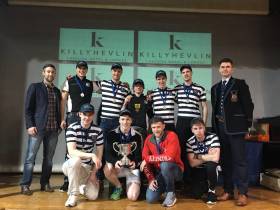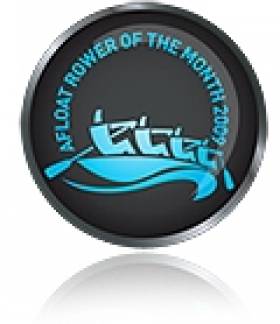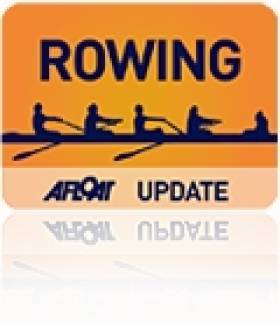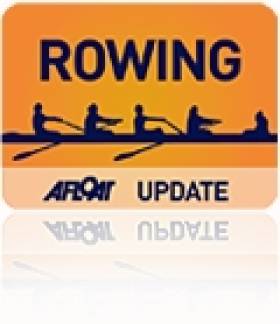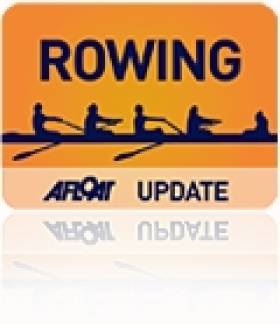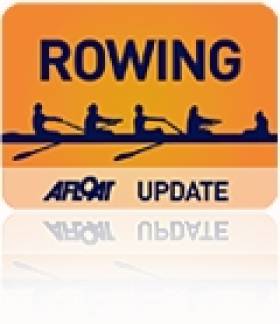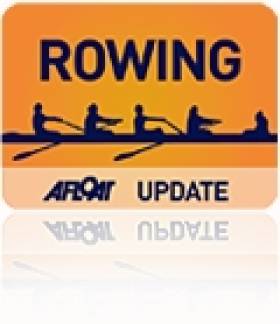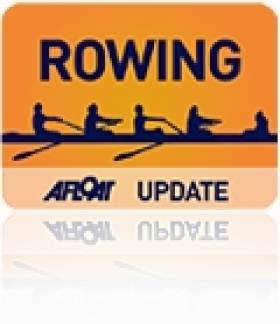Displaying items by tag: Amsterdam
Cruise Industry Association Says Passenger Ships Have Not Been Banned From Dutch Capital
In Amsterdam, a city council moves to 'keep' cruise ships out of the city-centre, according to Cruise Lines International Association (CLIA), the world's largest cruise industry trade association.
As Tradewinds reports, Amsterdam is certainly looking to prevent massive sized cruise ships from berthing in close proximity to the centre of the city. This would reduce in port terminal based air pollution and hinder partygoers in their thousands from laying siege upon residential areas.
But CLIA in a press release said that city officials do not plan to ban outright cruise ships from calling to the popular tourist destination, as some media reports have suggested, among them BBC coverage as featured previously.
On Thursday, the city’s Local Council approved a proposal however, to relocate the 600m quay Passenger Terminal Amsterdam (PTA) to a less central area within the city, to be determined.
CLIA also in their statement said “We are aware of the media reports about the future of cruise in Amsterdam".
“As the port has publicly stated, cruise ships have not been banned from Amsterdam.”
CLIA added that the Port of Amsterdam and the PTA have pledged to invest millions in port infrastructure with upgrades and shoreside electricity “for the long-term”, but the terminal may get moved to a less central area within the city.
Since 2016 there have been discussions on its relocation outside of the city centre and that talks are still ongoing.
For more, Tradewinds has the story.
In the Dutch capital, cruise ships have been banned from the city-centre by Amsterdam's council, as it tries to limit visitor numbers in addition to curb on pollution.
According to politicians, the vessels were not in line with the city's sustainable ambitions.
The ban will mean that the central cruise terminal (Passenger Terminal Amsterdam) on the River Ij near Amsterdam's main 'Centraal' train station will close. The PTA caters for around 200,000 visitors annually.
The move marks the latest measure to clamp down on mass tourism affecting the city where the 600m quayside facility also used by naval ships is 14kms from the open sea.
More on the story from BBC News which reports that the cruise ships have become a symbol of the problem, as the capital receives more than 100 such vessels berthing every year.
Trinity Keep Up Record of Wins at Erne Head
#Rowing: Trinity’s senior eight were the fastest crew at the re-fixed Erne Head of the River in Enniskillen today. It was their fourth consecutive win, achieved this year in rainy conditions. Junior crews did well: Enniskillen RBC’s junior men’s eight were third fastest overall and the fastest women’s crew was the host club’s junior eight.
In Amsterdam, UCC’s men’s eight were the best Irish crew at the Heineken Roeivierkamp. They took 32nd in the men’s race over 2,500 metres in seven minutes 36.8 seconds.
Erne Head of the River, Saturday (Selected Results)
Overall: 1 Trinity men’s senior eight 19 minutes 17 seconds, 2 Commercial sen eight 19:50, 3 Enniskillen jun eight 20:04, 4 Trinity inter eight 20:27, 5 Neptune club two eight 20:49, 6 Lagan senior quadruple 20:57: 17 Enniskillen women’s junior eight 22:39.
Men
Eight – Senior: Trinity 19:17. Inter: Trinity 20:27. Club Two: Neptune 20:49. Nov: Trinity A 21:26. Junior: Enniskillen 20:04. Masters: Commercial (D) 21:42. Jun 16: Col Iognaid 22:20.
Four – Jun, coxed: Commercial 22:35.
Sculling, Quadruple – Sen: Lagan Scullers 20:57. Inter: Belfast 21:53. Nov, coxed: Commercial 27:13. Jun: Neptune A 21:12. Jun 16, coxed: Bann 23:17. Masters, coxed: City of Derry (E) 24:31.
Women
Eight – Inter: Trinity 22:48. Club One: Bann 22:46. Club Two: Carlow 25:59. Jun: Enniskillen 22:39. Jun 16: Enniskillen A 23:53. Masters: Portora (D) 30:27.
Four – Sen: Trinity 24:25. Inter, coxed: Trinity 26:35.
Sculling, Quadruple – Jun: Col Iognaid 25:22. Jun 16, coxed: Carlow 25:08. Masters, coxed: City of Derry, Lagan, Offaly (C) 29:42.
Roeivierkamp, Amsterdam (Selected Result)
Men, 2500 metres: 1 Nereus 1e Eight 6:48.6; 8 Nereus 2e Eight 7:10.8; 32:UCC 2e Eight 7:36.8.
Afloat Rower of the Month is World Rowing Finalist Sanita Puspure
#ROWING: The Afloat Rower of the Month for August is Sanita Puspure. The Old Collegians oarswoman took fourth place at the World Rowing Championships in Amsterdam in the single sculls, just outside the medals in this elite discipline. She had won her heat, placed second in the quarter-final and third in a semi-final where conditions were very difficult.
The performance topped off an outstanding season for this gritty competitor. She started her run with silver medals on both days of the Memorial Paolo d’Aloja regatta in Italy in April. She took a bronze medal at the European Championships – a breakthrough for an Ireland heavyweight woman – and then made the A Final at the World Cup regatta in Aiguebelette, and won the B Final at Lucerne.
Rower of the Month awards: The judging panel is made up of Liam Gorman, rowing correspondent of The Irish Times and David O'Brien, Editor of Afloat magazine. Monthly awards for achievements during the year will appear on afloat.ie and the overall national award will be presented to the person or crew who, in the judges' opinion, achieved the most notable results in, or made the most significant contribution to rowing during 2014. Keep a monthly eye on progress and watch our 2014 champions list grow.
Puspure Masters Choppy Waters to Take Place in World Rowing A Final
#ROWING: Sanita Puspure secured an A Final place for Ireland with an admirable performance in difficult conditions in the semi-final of the women’s single sculls at the World Championships in Amsterdam today. Puspure fought her way into third place behind the impressive Emma Twigg of New Zealand and Magdalena Lobnig of Austria early on and held this down the course in choppy water. She refused to yield to a strong challenge from Genevra Stone of the United States and closed up on Lobnig in the run to the line.
The Ireland women’s double of Helen Hannigan and Monika Dukarska finished sixth in a record-breaking semi-final. Sally Kehoe and Olympia Aldersey of Australia won in a new world’s best time. Ireland started quite well, but were not in real contention for a place in the A Final.
There was also a new record in the lightweight men’s four semi-final. Denmark ousted their own country’s great crew of the 1990s from the record books while second-placed Britain, with the Chambers brothers, Peter and Richard, in the two and three seats, also came in under the old record.
World Rowing Championships, Amsterdam, Day Six (Irish interest, selected results)
Men
Lightweight Four – Semi-Final (First Three to A Final): 1 Denmark 5:43.16 (world best time), 2 Britian (M Aldred, P Chambers, R Chambers, C Bartley) 5:43.97, 3 New Zealand 5:47.95.
Lightweight Pair – B Final (Places 7 to 12): 1 China (Zhenwei Hou, Fangbing Zhang) 6:28.29, 2 Bulgaria 6:30.40, 3 Netherlands 6:31.01, 4 Ireland (M O’Donovan, N Kenny) 6:34.06, 5 Austria 6:37.65, 6 Chile 6:43.01.
Women
Four – B Final (Places 7 to 10): 1 Netherlands 6:28.95, 2 Italy 6:35.51, 3 Germany 6:37.90, 4 Ireland (M O’Neill, E Tormey, A Keogh, B O’Brien) 6:43.62.
Double – A/B Semi-Final (First Three to A Final; rest to B Final) 1 Australia (O Aldersey, S Kehoe) 6:37.31 (new World Best Time), 2 Lithuania (D Vistartaite, M Valciukaite) 6:30.34, 3 New Zealand (F Bourke, Z Stevenson) 6:43.34; 4 Netherlands 6:46.40, 5 Ukraine 6:59.20, 6 Ireland (H Hannigan, M Dukarska) 7:14.75.
Lightweight Double Sculls – C Final (Places 13 to 18): 1 Russia (D Stepochkina, O Arkadova) 6:58.21, 2 Ireland (C Lambe, D Walsh) 7:00.11, 3 Denmark 7:03.49, 4 Switzerland 7:03.51, 5 Belarus 7:09.08, 6 Greece 7:14.20.
Single – A/B Semi-Final (First Three to A Final; rest to B Final): 1 New Zealand (E Twigg) 7:18.68, 2 Austria (M Lobnig) 7:23.93, 3 Ireland (S Puspure) 7:25.61; 4 United States 7:29.18, 5 Lithuania 7:33.09, 6 Czech Republic 7:43.150.
Tenth Places for Two Ireland Crews at World Rowing Championships
#ROWING: Ireland’s men’s lightweight pair finished fourth in their B Final, 10th overall, at the World Rowing Championships in Amsterdam today. China won in a fast time in tailwind conditions, with Bulgaria and the Netherlands battling each other and finishing second and third. Ireland’s Niall Kenny and Mark O’Donovan were fifth through the middle stages but won their own battle with Austria to take a clear fourth.
The women’s four of Marie O'Neill, Emily Tormey, Aifric Keogh and Barbara O'Brien were fourth in their B Final, behind the Netherlands, who won impressively from Italy, with Germany third.
World Rowing Championships, Amsterdam, Day Six (Irish interest, selected results)
Men
Lightweight Pair – B Final (Places 7 to 12): 1 China (Zhenwei Hou, Fangbing Zhang) 6:28.29, 2 Bulgaria 6:30.40, 3 Netherlands 6:31.01, 4 Ireland (M O’Donovan, N Kenny) 6:34.06, 5 Austria 6:37.65, 6 Chile 6:43.01.
Women
Four – B Final (Places 7 to 10): 1 Netherlands 6:28.95, 2 Italy 6:35.51, 3 Germany 6:37.90, 4 Ireland (M O’Neill, E Tormey, A Keogh, B O’Brien) 6:43.62.
Lightweight Double Sculls – C Final (Places 13 to 18): 1 Russia (D Stepochkina, O Arkadova) 6:58.21, 2 Ireland (C Lambe, D Walsh) 7:00.11, 3 Denmark 7:03.49, 4 Switzerland 7:03.51, 5 Belarus 7:09.08, 6 Greece 7:14.20.
Frustration For Ireland as Russia Take First in World Rowing C Final
#ROWING: Ireland’s lightweight double scull of Claire Lambe and Denise Walsh came second to Russia in their C Final at the World Rowing Championships in Amsterdam this morning. The Russian crew of Diana Stepochkina and Olga Arkadova led all the way down the course, with Ireland snapping at their heels. But the Irish fell short by just under a boat length. The result places Lambe and Walsh 14th overall in this Olympic-class event.
World Rowing Championships, Amsterdam, Day Six (Irish interest, selected results)
Women
Lightweight Double Sculls – C Final (Places 13 to 18): 1 Russia (D Stepochkina, O Arkadova) 6:58.21, 2 Ireland (C Lambe, D Walsh) 7:00.11, 3 Denmark 7:03.49, 4 Switzerland 7:03.51, 5 Belarus 7:09.08, 6 Greece 7:14.20.
O'Donovan Accelerates Into A Final at World Rowing Championships
#ROWING: Paul O’Donovan gave Ireland its first A Final place at the World Rowing Championships in Amsterdam today with a stirring performance which yielded second place in the lightweight single sculls semi-final. The UCD man lagged the field in the early stages; he was sixth at 500 metres as Zhao Jingbin of China and Marcello Miani of Italy commanded the race. By halfway O’Donovan was marginally in third place, but still over three seconds behind the leaders. As Miani moved clear in the final 1,000 metres, O’Donovan chased down and passed the Chinese. In a close finish, O’Donovan and Perry Ward of Australia took second and third, with Zhao Jingbin pushed into fourth and the B Final.
The Ireland lightweight men’s pair of Mark O’Donovan and Niall Kenny finished sixth in their semi-final and must settle for a B Final place. This was an exciting and fast race where all the boats were in with a chance of qualification until the very final stages, Switzerland, France and Australia took the A Final spots.
World Rowing Championships, Day Five (Irish interest; selected results)
Men
Lightweight Pair – A/B Semi-Final One (First Three to A Final; rest to B Final): 1 Switzerland (S Niepmann, L Tramer) 6:38.67, 2 France (A Mouterde, T Baroukh) 6:41.22, 3 Australia (A Foot, D Purcell) 6:42.39; 4 Bulgaria 6:44.00, 5 Netherlands 6:45.00, 6 Ireland (M O’Donovan, N Kenny) 6:46.60.
Lightweight Single Scull – A/B Semi-Final One (First Three to A Final; rest to B Final): 1 Italy (M Miani) 7:02.00, 2 Ireland (P O’Donovan) 7:03.59, 3 Australia (P Ward) 7:04.10; 4 China 7:04.99, 5 Denmark 7:08.21, 6 Hungary 7:15.08.
Women
Pair – A/B Semi-Final Two (First Three to A Final; rest to B Final): 1 United States (M Kalmoe, K Simmonds) 7:16.35, 2 New Zealand (L Trappitt, R Scown) 7:22.12, 3 Australia (C Sutherland, L Stephan) 7:30.02; 4 Serbia 7:34.92, 5 Ireland (L Kennedy, L Dilleen) 7:35.18, 6 Czech Republic 7:45.68.
Lightweight Double Sculls - C/D Semi-Final (First Three to C Final; rest to D Final): 1 Denmark 7:25.98, 2 Ireland (C Lambe, D Walsh) 7:26.35, 3 Russia 7:26.65; 4 Argentina 7:27.24.
O'Donovan's Second-Half Speed Secures World Rowing Semi-Final Place
#ROWING: Paul O’Donovan put in a brilliant second 1,000 metres to secure a semi-final place in the lightweight single sculls at the World Rowing Championships in Amsterdam today. O’Donovan needed to finish in the top three of the quarter-final to progress, but he was was fifth at half way, over one-and-a-half seconds behind third-placed Steffen Jensen of Denmark, with Russia’s Alexandr Tufanyuk fighting it out with Lars Hartig of Germany at the head of the field. O’Donovan turned it on in the second half. As the Russian faded, the Irishman took over in third behind Hartig and Jensen, and then passed the Dane to take second – just over a second behind Hartig.
In a major shock, the World Under-23 champion, Andrew Campbell Jr of the United States, made his exit when he fell out of the boat in the immediately preceding heat.
World Rowing Championships, Day Four (Selected Results; Irish interest)
Men
Lightweight Single Sculls – Quarter-Final (First Three to A/B Semi-Finals; rest to C/D Semi-Finals): 1 Germany (L Hartig) 7:13.67, 2 Ireland (P O’Donovan) 7:14.76, 3 Denmark (S Jensen) 7:33.91; 4 Azerbaijan 7:25.84, 5 Russia 7:33.91, 6 Algeria 7:43.76.
Fourth for Hannigan and Dukarska in First World Rowing Test
#ROWING: The new Ireland women’s double scull of Monika Dukarska and Helen Hannigan (neé Walshe) took fourth in their heat at the World Rowing Championships in Amsterdam today. Lithuania and the Ukraine fought it out at the head of the field, with Lithuania pulling away at the end. Ireland were in third at 1500 metres but yielded this to Denmark at the finish.
The Ireland women’s four were off the pace in their heat and finished fifth. The New Zealand four were extremely impressive in their win, and France held off Canada to take the second qualification spot for the A Final.
World Rowing Championships, Amsterdam, Day Two (Selected Results, Irish interest)
Men
Lightweight Pair – Heat Two (First Two to A/B Semi-Finals; rest to Repechage): 1 Ireland (M O’Donovan, N Kenny) 6:53.54, 2 China (Zhenwei Hou, Fanbing Zhang) 6:54.57; 3 Switzerland 7:03.74, 4 Australia 7:10.31, 5 Bulgaria 7:13.05, 6 Austria 7:19.39.
Women
Four – Heat One (First Two to A Final; rest to Repechage): 1 New Zealand 6:46.42, 2 France 7:01.16; 3 Canada 7:03.68, 4 Italy 7:09.17, 5 Ireland (M O’Neill, E Tormey, A Keogh, B O’Brien) 7:19.28.
Double Sculls – Heat One (Winner to A/B Semi-Finals; rest to Repechage): 1 Lithuania (D Vistartaite, M Valciukaite) 7:05.28; 2 Ukraine 7:09.74, 3 Denmark 7:24.04, 4 Ireland (H Walshe, M Dukarska) 7:24.59, 5 Austria 7:29.06, 6 Bulgaria 7:49.72.



























